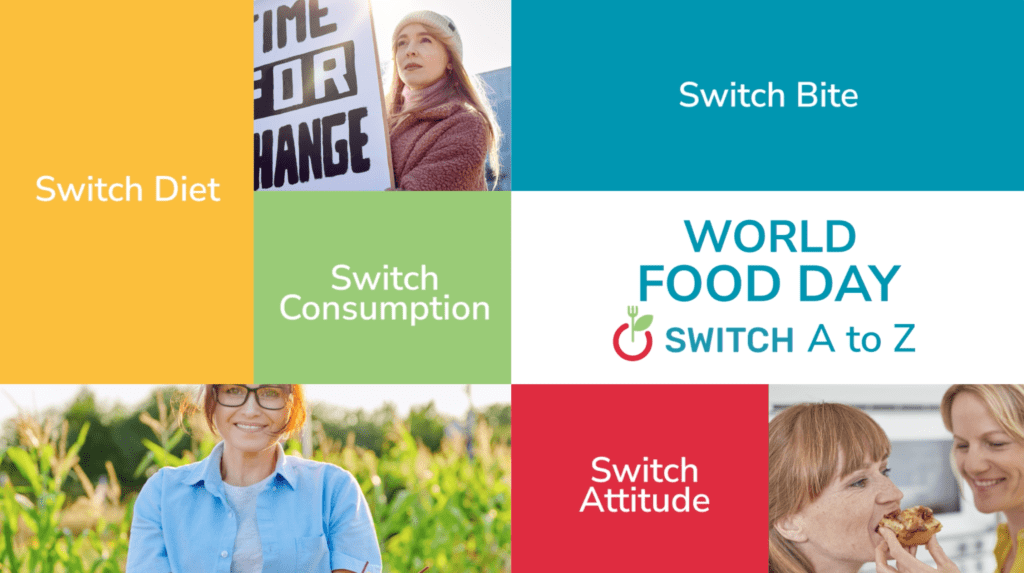As today is World Food Day on October 16th, we find ourselves at a unique juncture in history, marked by the profound challenges of a global pandemic and the stark brutality of an ongoing, inhumane conflict. These unprecedented crises have tested the delicate balance of our planet’s energy and food security. In such turbulent times, we are reminded of the wisdom of a decision made by the United Nations in 1969 — to establish a dedicated agency for food and agriculture, the Food and Agriculture Organization (FAO). Since its inception, the UN has steadfastly recognized food, the fight against hunger, and support for agriculture as essential pillars for the well-being of humanity and the pursuit of a more equal, peaceful, and sustainable world.
Today, more than ever, we comprehend the urgency of political action and community-level engagement in reshaping our eating habits, distribution models, and production methods. These transformative efforts are the keys to building a healthier planet that can withstand the multifaceted challenges posed by our changing world. This article explores the imperative need for a profound shift in our food systems, one that encompasses integral regeneration and a broader awareness of food’s role in shaping our future. We delve into initiatives like the European project SWITCH, which seeks to drive change through knowledge and innovation, aiming to create just, healthy, and sustainable food systems for European citizens. As we journey through these concepts, we must remember that true transformation begins with changing mindsets and nurturing a deeper connection between humanity and the environment — a path to co-creating a more harmonious world.
In 2017, the United Nations body that assesses scientific knowledge related to the world’s food security and nutrition, the High-Level Panel of Experts on Food Security and Nutrition (HLPE) of the Committee on World Food Security (CFR), sanctioned a definition of food systems still used by FAO. «All elements (environment, people, inputs, processes, infrastructure, institutions, etc.) and activities involved in the production, processing, distribution, preparation, and consumption of food, and the outcomes of these activities, including socio-economic and environmental outcomes».
Everyone can see how much this agglomeration, which far surpasses the concept of food alone, if nicked in even one of its parts, may be vulnerable to a general collapse due to unsustainable pressure from a steadily growing urban population, overexploitation of natural resources, increasing climate variability, environmental degradation, loss of biodiversity and social inequity. Add to this political uncertainty, market instability, and social insecurity due to the war that affects price increases, supply disruptions, and rising product prices: in short, new threats to food security, nutrition, natural resources, and social inclusion.
So, how do we take action to protect food systems and, consequently, take care of «all the elements» mentioned by the HLPE?
Undoubtedly, integrating existing national programs and strategies and intergovernmental cooperation aimed at introducing a systems approach to food policy and, through continuous cross-sectoral dialogue involving all actors in food-related decision-making, all while taking concrete steps to operationalize the goals set by individual governments and the 2030 Agenda.
All true. Yet, a strategy to take care of the food system must consider a crucial transformative factor, largely independent of governmental and institutional actions: a change of mindset, which can only come from spreading a broader awareness about food.
There is never a chance to renew and regenerate a system — whether natural or human — without acting on each of the elements that are mutually interconnected and interact with each other or with the external environment. These elements include people: they are us, with our consciousness (or unconsciousness) about the enormous power of food as a factor of integral regeneration.
My experience leads me to state with conviction that even a single encounter, even a casual one, can radically change our mentality in the way we relate to food and everything related and unrelated to it.
It is true, however, that if you want to act on a large scale, you need to join projects that work precisely to change mindsets, enhancing them concretely.
The goal of the European project SWITCH, funded by Horizon Europe, in line with the United Nations Sustainable Development Goals (SDGs), is to change the food systems of European citizens towards a just, healthy, and sustainable food transition through knowledge and innovation.
Read the full article on medium.com

